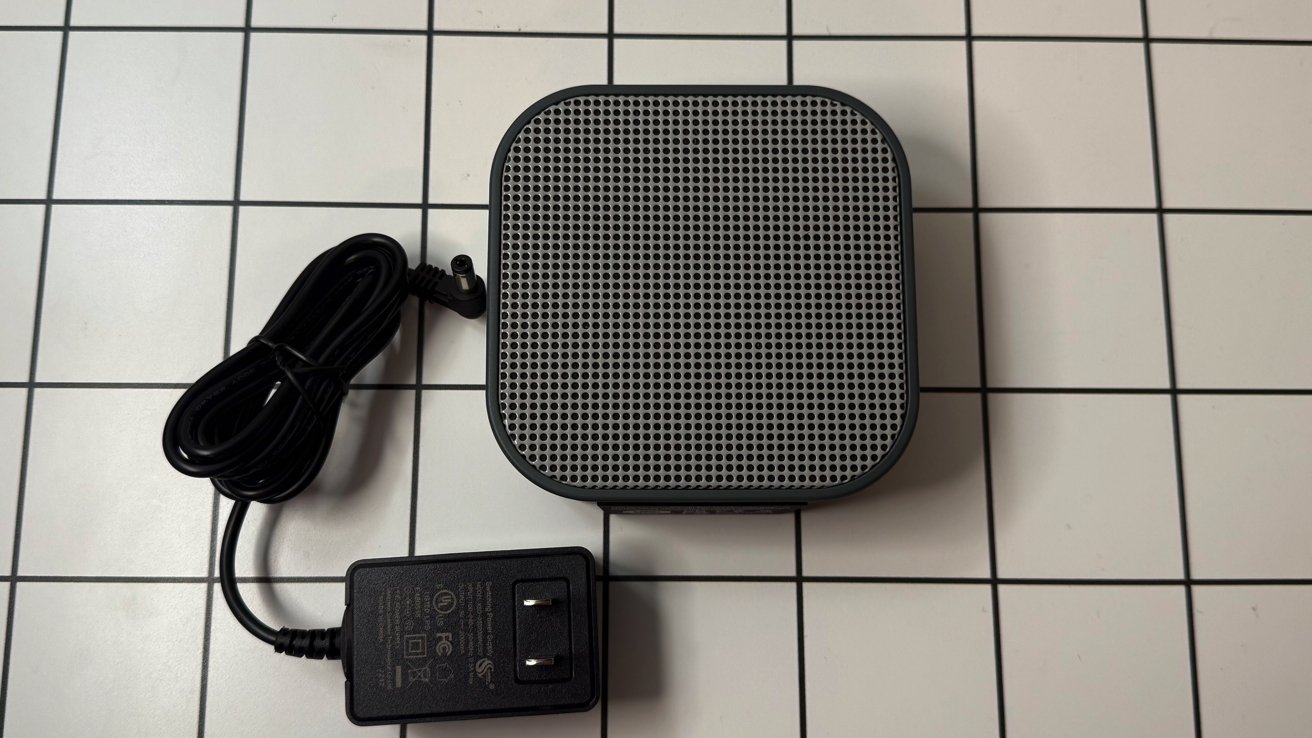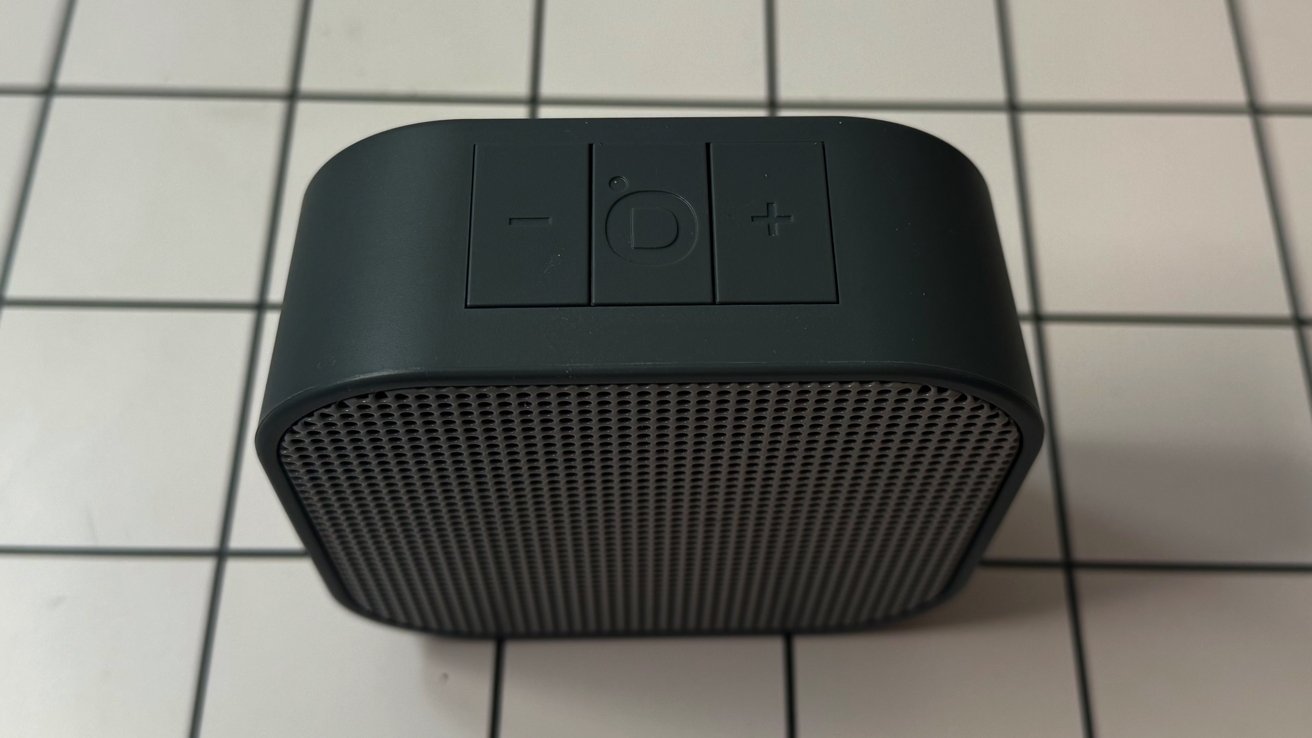The Dio Node sounds great for a single Wi-Fi speaker, but a lack of stereo pairing and the extremely close proximity of the HomePod mini to the price point make it a tough choice.
For the longest time throughout the 2010s in another venue, I’d joke that we were hazing new writers by bombarding them with wireless Bluetooth speakers. They were cheap, easy to write, and generally were pretty terrible beyond some of the multi-hundred dollar systems.
Just ask Amber about this. She probably bore the brunt of that when she first got hired.
It’s a decade later, and that wireless speaker landscape has greatly changed. There are still lower-end models, and over the years performance has crept up, while costs have (mostly) shifted downward.
The Dio Node is a relatively new entrant to the space. It does one thing, simply — it plays AirPlay audio, over Wi-Fi, in monaural audio.
And, it’s priced too adjacently to the HomePod mini for its own good.
Dio Node review – design and specs
The Dio Node is a compact, black speaker. It’s got a relatively small 5-volt 2-amp wall wart for power and a barrel connector on the speaker end — but we’d prefer USB-C at this point for devices like this.
The company says it has a frequency range of 20 Hz to 220 Hz up to 60dB, and 0.22 Hz to 20 kHz up to 85 dB.
This is all contained in a 4-inch by 4-inch square that is 1.5 inches deep. It’s got a nice form factor for sitting on a shelf, for instance, or hiding above the kitchen cabinets. Each speaker weighs a half-pound.
Wi-Fi is rudimentary, but it doesn’t have to be fantastic. It’s got 802.11a/b/g/n connectivity and absolutely no Bluetooth.
Setup is as simple as promised. Plug in the speaker, get a red blinking light on the back, and it’ll appear on your iPhone as an AirPlay speaker in Settings.
Just about anything you can stream across AirPlay can be sent to the speaker. What it won’t take is voice calls or system alert audio. This isn’t out-of-bounds or abnormal, so that’s fine.
The sound from the Dio Node is clear, which is nice. It’s not stereo, nor is there any way to make two a stereo set out of two of them, which is not nice, and is a problem.
As with any speaker on AirPlay, there will be a slight lag between the device and the speakers. This is AirPlay negotiation to make sure that they’re all playing the same audio at the same time, and isn’t a fault of the device. It’s just how AirPlay works.
What this practically means, is like any other AirPlay speaker, it won’t be fantastic for time-sensitive audio cues in games. It’ll be fine for listening to music though.
Unlike most speakers in the class by vendors other than Apple, there’s a way to upgrade the firmware on the speakers, if there’s an update available. That’s done by holding down all three buttons on the top of the device.
Dio Node review – a tough sell for Apple users
Amazon’s Alexa is a surveillance machine and generally sounds worse than Dio Node. It should sound worse, though, given that they generally cost less than a Dio Node because of being that surveillance machine and a gateway to Amazon.
For AppleInsider readers, the primary consideration is how well they integrate with Apple gear. AirPlay takes care of the integration on Dio Node, and a lack of a microphone is either a selling point or a major detractor.
Sound quality is incredibly objective. The Dio Node is good, and approximately the same depth of sound and bass that a single HomePod mini will do.
That HomePod mini can be paired with another one, and you can get stereo sound. This isn’t the case with the Dio Node, which is a big, big strike against it.
So, I have a hard time recommending the Dio Node for iPhone-centric music listeners, given that HomePod minis can be had on sale for the same price as a Dio Node three-pack per-unit cost. But, for audiobook fans, who don’t want a microphone on their speaker, this might be perfect.
It’d also be pretty good as a satellite speaker in a spare room, or in the garage to have a consistent listening experience as you putter around the house on a chores day.
But, that price-point adjacency to the HomePod mini is an issue. A three-pack of Dio Node speakers is currently on sale for $239. At full retail, three HomePod minis come in at just a hair under $300. HomePod minis frequently go on sale for $80, bringing three of them down to $240 also.
And for that $300 or $240, you get a product that’s more mated to the Apple ecosystem. And, Apple’s offering can be stereo paired.
But, it’s just not a replacement for the HomePod mini at this price point. That is, unless you want a Wi-Fi AirPlay mono speaker, without a microphone.
Dio Node review — pros
- Compact and attractive design
- Well-engineered with a solid build quality
- Good mono sound quality for a small speaker
Dio Node review — cons
- Wall wart instead of USB-C
- No way to stereo pair multiple units
- Too close to price to the better HomePod mini, even in a three-pack
Dio Node review – 3 out of 5
The Dio Node is well-built and sounds good — for mono. It’s a fun little speaker that has its uses. But, it’s just too close in price to the HomePod mini which can be paired for stereo, has that microphone, and integrates better with the entire Apple ecosystem, and not just the iPhone.
Where to buy the Dio Node
The Dio Node is available from the Dioconnect website. A single unit retails for $89.95, a three-pack as reviewed here sells for $239, and a five-pack costs $399.






